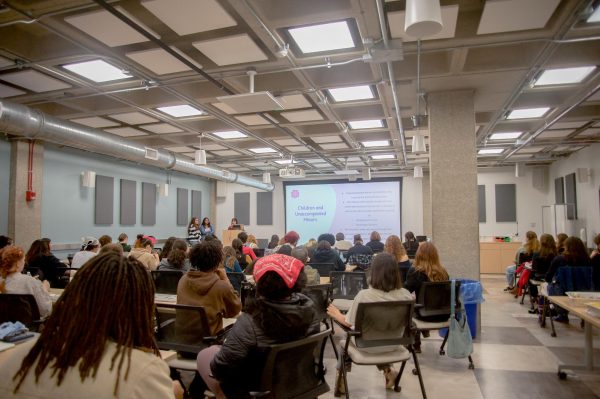Accessibility to Philosophy Will Positively Affect Field
The role of college students in the Oberlin community has long been hotly debated. So, too, has been the lack of the diversity in the field of philosophy. Though these two issues may seem unrelated, the new Philosophy in the Schools Practicum has made a great start in addressing both.
Spearheaded by Chair of the Philosophy Department Katherine Thomson-Jones, the PHITS class is a course in both philosophy and education. Every week, the 16 Oberlin students enrolled in PHITS go to Eastwood Elementary School in Oberlin and teach three classrooms of second graders and one of first graders. There, the college students read a children’s book, like Morris the Moose or The Giving Tree, to the class and then facilitate a philosophical discussion responding to the reading.
In “Philosophy Departments Lack Diversity” (The Oberlin Review, Feb. 10, 2017), I addressed the lack of women and people of color in the philosophy field. As of 2014, only 28 percent of master’s degrees and 31 percent of doctorates in the discipline were held by women in the U.S. At Oberlin, an average of 28.9 percent of philosophy degrees have been awarded to women since 2013. Across the board, statistics concerning people of color in the field are similarly low.
PHITS is a program that, if implemented in universities across the country, has the potential to begin to address these discrepancies. Philosophy can be intimidating to people who are new to the field, and is often misunderstood as a result. Because of its inaccessibility and because philosophy courses tend to be dominated by white men, philosophy can often be exclusive to others without experience or privileged identities.
It is noteworthy that 12 out of the 16 Oberlin students in PHITS are women because, even at a progressive institution like Oberlin, the philosophy field tends to be dominated by men. This highly unusual gender distribution could be due to the fact that PHITS is cross-listed with the education concentration, and, according to NPR, women are much more likely to study education than men. Indeed, many of the students in PHITS, including some of the women, are pursuing education concentrations instead of philosophy majors.
The fact that PHITS also counts as an education course potentially creates promising inroads for women and people of color who may otherwise feel alienated in the field. This exposure could, over time, lead to an increased number of women and people of color in philosophy. If a student takes the course because they are interested in education, they may find that they are actually interested in philosophy as well.
Furthermore, about 47 percent of the students who attend Eastwood Elementary are children of color. Many students at Eastwood are also considered high-needs, according to Thomson-Jones. Teaching philosophy to children of color and to high-needs children will drastically affect the accessibility of the philosophy field. By exposing children to philosophy at a young age, we teach them that philosophy is a field that anyone can certainly contribute to and succeed in.
Early exposure to philosophy can also give children the confidence they need to enter philosophy classrooms down the road. Recent studies have suggested that having a weekly philosophy class positively affects literacy and mathematical proficiency in children — especially those considered high-needs — by teaching valuable skills such as the articulation of perspectives, respectful listening and discussion, and how to structure an argument. Teaching philosophy to kids at a young age therefore enhances their reading comprehension and their overall educational experience.
Finally, PHITS provides a non-transitory town-gown program. It is a difficult task for college students to form any real, lasting relationships with a community that they are only a part of for four or five years. However, having the consistent presence of college students teaching elementary schoolers and making topics like philosophy more accessible to them is a good way for college students to have a long-term, positive impact on the Oberlin community.
At the end of the PHITS program, the elementary students will receive bracelets reading, “I am a philosopher.” This is a powerful message to these students at such a young age, and an affirmation that they are capable of pursuing whatever discipline they choose. Philosophy should not discriminate, nor should any other academic field. PHITS serves not only to teach students philosophy, but also to give confidence to local children and to foster a relationship between the college and community. It is a method of teaching both college and elementary school students more about philosophy, and should serve as a model for other fields to aspire to.


